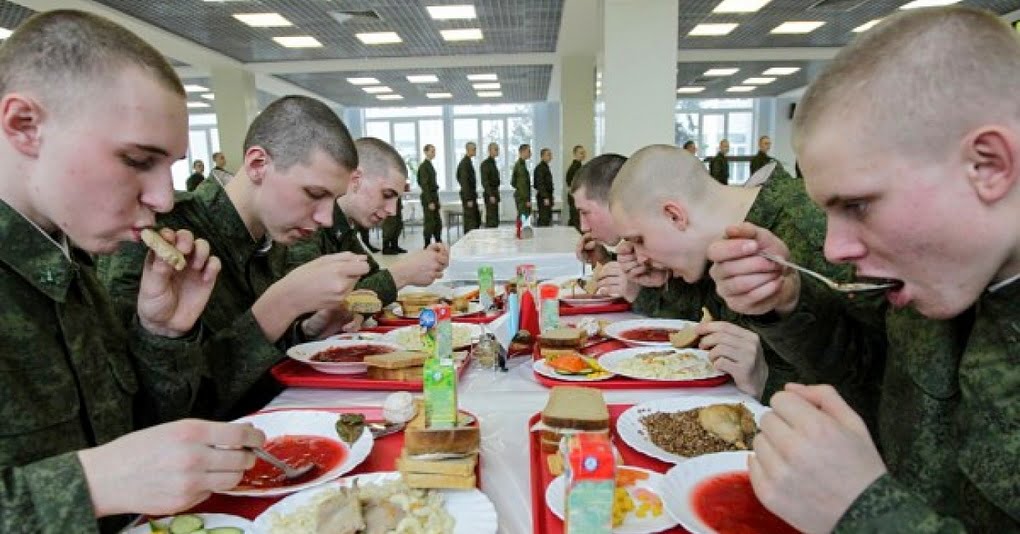According to the established opinion, the practice of deliberately weakening the potency of young defenders of the Fatherland was popular in Soviet and then Russian military units. This was done so that all their thoughts were only about military service. We checked if this is true.
Rumors about harmful practices have been circulating for a long time. Thus, Ilya Erenburg in his 1941 political novel “The Fall of Paris” wrote:
“They said that they put bromine in soldiers’ coffee so that they wouldn’t miss their wives. And Joliot published couplets in his newspaper:
Gretchen, I'm at your house
Without bromine, without bromine, without bromine!..”
Similar information is found in later journalism And fiction. And not only in Russian. Thus, Paul Ferris devoted a chapter to history entitled “Bromine in Tea” of his work “Sex and the British: a history of the 20th century"
How writes famous doctor and popularizer of science Karl Krushelnitsky, this story is known all over the world in different variations. In Poland they say that coffee is processed; the French legend says that wine is diluted with bromine. In South Africa, it is believed that a mysterious substance called "blue stone" is added to the food of recruits to calm them down, while in Germany there are rumors of a "double whammy" of iodine in coffee and soda in meat.
Krushelnitsky suggests that the following circumstance served as the basis for the emergence of the legend about bromine in the army. In the 19th century bromine salts (potassium, lithium, calcium, sodium, strontium and ammonium bromides) have been used as sedatives to treat everything from mild sleep disorders to full-blown epilepsy. A single dose ranged from one third to two grams. In particular, children from the upper strata of society were secretly fed bromine salts in order to reduce their natural activity level for their age. This was done through the child’s personal salt shaker at the table - the object was supposedly supposed to emphasize the respected status of the child, but in fact it was a way of implementing the principle “Children should be seen, but not heard.”
In this regard, Krushelnitsky notes: if bromine salts are at all capable of having any effect on decreased libido, then this will only be a side effect of their main use as a sedative. In other words, if the dose is sufficient, we will get a sleepy soldier without any desires.
Words by Karl Kruszelnicki confirms and science historian Brian Clegg. He talks about an interesting episode. It turns out that the sedative properties of potassium bromide were open in 1857 by Charles Locock after he read about the temporary impotence of several men who took the substance. Locock tried to use bromine to treat attacks of hysteria in women (at that time it was considered a purely female disease), and it was successful. Since then, potassium bromide has become one of the main sedatives for more than a century. funds, and only in the 1970s did phenobarbital begin to supplant it. But regarding army practice, Clegg gives a more precise place and time of origin of the legend about bromine in tea: Great Britain, during the First World War.
As for the Soviet and Russian armies, there is no data convincingly confirming such practices. And sexologists and military psychologists unanimously they assure: This is impossible and has not been possible before. The fact that bromine in its pure form is a poison with all possible consequences is indisputable. Well, various bromides are extremely undesirable for people who require concentration, activity and who experience serious physical exertion. Experts note that these same stresses are the reason for a certain decrease in sexual desire. A similar situation, often encountered in “civilian” life, forces military personnel to believe in the plausibility of the legend.
Thus, rumors about the addition of bromine to food in the army are nothing more than a myth.
Photo: Army Standard magazine.
Not true
Read on topic:
- Military myth puts lead in bromide's pencil
- Who's afraid of bromine?
- Do they give bromine in the army?
If you find a spelling or grammatical error, please let us know by highlighting the error text and clicking Ctrl+Enter.







